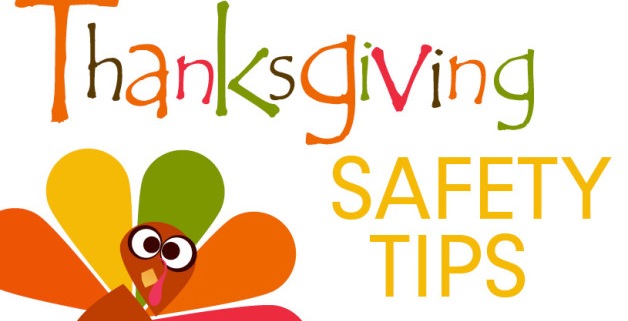Thanksgiving Safety Tips from Boyd & Associates
Did you know that the number of fire alarms Boyd & Associates monitoring center receives skyrockets on Thanksgiving Day, largely because of home cooking fires?
Cooking is the number one way house fires start, and the NFPA agrees, Thanksgiving is the peak day for home cooking fires. Luckily, many of the alarm signals received by our monitoring center on Thanksgiving are accidental alarms, not full-fledged fires. But with a house full of guests and a belly full of carbs, revelers often aren’t prepared to respond to their monitoring center’s outreach.
Even if Turkey Day is just a small, intimate group this year, you won’t want your holiday interrupted by a home cooking fire or even a smoke alarm.
Many Boyd & Associates customers experience this frustration around the holidays, and the people who know first-hand are the Protection Specialists in our 24-hour monitoring centers. They’ve provided tips on how to help prevent cooking fires and accidental alarms on Thanksgiving, and what to do if your smoke alarm goes off.
How to set yourself up for safe cooking on Thanksgiving
It only takes a few simple steps and a little mindfulness to prepare.
Just in case your monitored smoke alarms are triggered, Boyd & Associates customers should have these two pieces of information memorized or accessible:
- Your Verbal Alarm Password (if you have one) – this is the single word you will give Boyd & Associates to verify your identity on the phone.
- Your Master Panel Code – this is the numeric code you will need to disarm your system at the panel.
If possible, give several people you trust access as well. If you’re pulling a 12-lb turkey out of your blazing hot oven, you’ll appreciate the extra hands.
Additional prep should include:
- Clean any grease, dust, or food particles from your oven and stove top.
- Make sure you have a non-expired, properly inspected handheld fire extinguisher nearby.
- Program the phone number for Boyd & Associates monitoring center (800. 381. 2693) into your phone so you’ll immediately know it’s us if we call. This number is exclusively used by our monitoring team, so you can also use it to notify us of an accidental alarm or return a call from one of our Protection Specialists.
- Speaking of calls from Boyd & Associates, make sure your emergency contact list for Boyd & Associates is correct.
- Test your smoke detectors to ensure that they are in working order.
How to prevent home cooking fires
The number one factor in home cooking fires is leaving your cooking food unattended. While everyone wants to spend time with guests on Thanksgiving, it’s important not to abandon an active kitchen. If possible, bring some of the socializing into the kitchen with you. Here are more tips to help prevent unintentional home cooking fires.
- Keep kids at least three feet away from the stove.
- Make sure all towels, potholders, flammable utensils, and other items are kept away from the stove top. Long sleeves, loose clothing, and long hair can also pose a fire risk.
- Double-check the burners when you turn a new one on or off.
- Don’t cook sleepy or while drinking. If you were up all night basting the turkey — or started celebrating early — give yourself a break and avoid the stove.
- When cooking with grease, keep a lid nearby in case you need to smother a fire.
- Turn your pan handles inward so you are less likely to knock it off the stove.
How to respond to a smoke alarm
First things first: If your smoke alarm goes off, start by determining whether there is a fire. This may sound obvious, but even if you’re pretty sure, play it safe and double-check. Your top priority is always getting yourself and your guests out of the house safely.
Next, know the drill. There is always a chance you’ll accidentally trigger your smoke alarm while cooking a big meal, no matter how careful you are. Smoke detectors sounding off when there’s no emergency can be frustrating but knowing what comes next will make it much easier to respond.
If there is an accidental alarm, you can temporarily silence your Boyd & Associates smoke detector by entering your numeric passcode and disarming your system. Remember, if there is still too much smoke, it may sound again. To lessen the chance of a false alarm while cooking large meals, try the following:
- Clean your smoke detector regularly to eliminate dust and dirt build-up.
- Keep a close eye on your food while cooking.
- Crack open a window before you start cooking.
- Set up a fan near your smoke detector.
- Use a smoke detector cover, which can be found at a hardware store or online.
We’re here to help
If you do experience a fire or medical emergency on Thanksgiving, remember: Boyd & Associates is here for you 24/7, and that includes holidays! In an emergency, you can always activate the fire or medical panic on your control panel, and Boyd & Associates monitoring center will respond quickly.
Don’t have a Boyd & Associates professionally monitored fire alarm system? Call us today to speak with one of our security experts.
- Managing Security for Easter Gatherings & Increased Foot Traffic - April 10, 2025
- Why Homeowners Are Investing in Security Systems in 2025 - March 27, 2025
- Protect Yourself from Tax Season Scams - March 10, 2025



